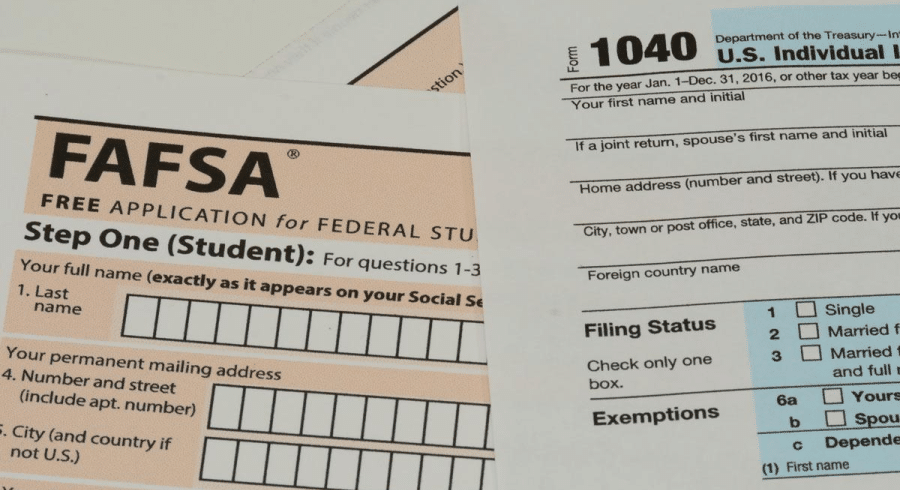Become a Financial Aid Genius: Part 2
If the thought of sending your child to college is making you sweat, don’t fear! While it is a major endeavor to get all the details in place, from choosing schools, navigating the application process, and planning for the transition, don’t let the worry about how to pay for all of it keep you up at night. In our last post, we provided an overview of the financial aid process and gave you ways to conquer the FAFSA. Now we are going to let you in on even more tips and tricks to maximize the financial aid your child could receive.
1. VERIFY HOUSEHOLD SIZE
The more people in your household, the better aid you will receive. If you have grandparents, nieces, nephews, or other family members living with you and relying on you for more than 50% of their support, you can include them in your household number. If you are expecting another child in the next school year, you can also include your unborn baby in the household size! Finally, if you have children who do not live with you but still rely on you for more than half of their support, they are also considered part of your household.
2. CORRECTLY REPORT YOUR BUSINESS
If you own your own business, be careful not to overvalue it on your application. Not all businesses are treated the same by FAFSA and the valuation could be quite low based on their criteria. For example, if you have small business with 100 or fewer full-time employees, you may not need to report your business at all!
3. CHOOSE WHO FILES
If you are divorced or legally separated, only one parent will file for financial aid. Since it can make a major difference in the aid received, make sure the right parent files. According to FAFSA, the custodial parent is the one who should apply, and that is the parent with whom your child has lived the most for the past 12 months. Ideally, the parent who makes the least money and has the lowest amount of assets is the custodial parent for financial aid purposes.
4. IGNORE COLLEGE LIFE INSURANCE
Many people aren’t even aware of college-oriented life insurance policies, but a salesperson may approach with this option. These policies often have high and unnecessary commissions and fees and have the potential to hurt your aid chances down the road, since utilizing these policies to pay expenses could increase your overall taxable income.
5. WATCH THE MARKETS
If you have a considerable amount of non-retirement investments, make sure you pay attention to the markets and file your aid application on a bad market day. This will lower the value of your assets and give you a chance to receive a better aid offer.
6. UNDERSTAND INCOME CATEGORIES
If your adjusted gross income is less than $50,000 and certain other criteria are met, (1) you do not have to share your non-retirement assets on the FAFSA. If you have found yourself without a job or underemployed, this can be a huge help in getting aid so your child can attend college.
7. STRATEGIZE GRANDPARENT CONTRIBUTIONS
If you are lucky enough to have parents who want to assist your kids with college, make sure you are smart about how you use that money. If a grandparent started a 529 account for their grandchild, that money will count as untaxed income for the student as soon as they take the money as a distribution. That amount could be assessed up to 50% in the aid formulas. Instead, grandparents can transfer ownership to parents where the amount will be assessed at the lower parent rate of 5.64%, or they can take a distribution in the child’s last year of school when the student will no longer be applying for aid.
8. COMPARE OFFERS
When you’ve completed the long, drawn-out application process and financial aid award letters start to roll in from your selected colleges, analyze the numbers. Your expected family contribution (EFC) should be listed on the letter, which will help you compare offers between the schools. If the award is much lower than the EFC suggests it should be, then it’s likely an inferior offer.
GET THE HELP YOU NEED
Applying for financial aid is not a simple process, but don’t let the stress and confusion stop you from making the wisest decisions and strategizing your application answers. Did you know that Archer Investment Management offers services to help you pay for college, including a specific Fafsassist package that will help you navigate financial aid roadblocks, complete and file major forms on your behalf, and help you determine which offer is best? We want to help you send your child to college with the best financial aid situation possible. Click here to schedule a phone call to get started!
About Richard
Richard Archer is a financial advisor and the President of Archer Investment Management with more than eighteen years of industry experience. Largely working with successful individuals and couples, he specializes in providing comprehensive investment guidance and personalized care and attention to each client. Along with holding a Bachelor of Science in Economics and a MBA, he is a CERTIFIED FINANCIAL PLANNER™ certificant and a Chartered Financial Analyst®. He combines his advanced industry education and knowledge with his genuine care for people to provide clients with an exceptional experience. To learn more about Richard, connect with him on LinkedIn or visit www.archerim.com.
______
(1) https://www.edvisors.com/fafsa/secrets/reduce-adjusted-gross-income/







